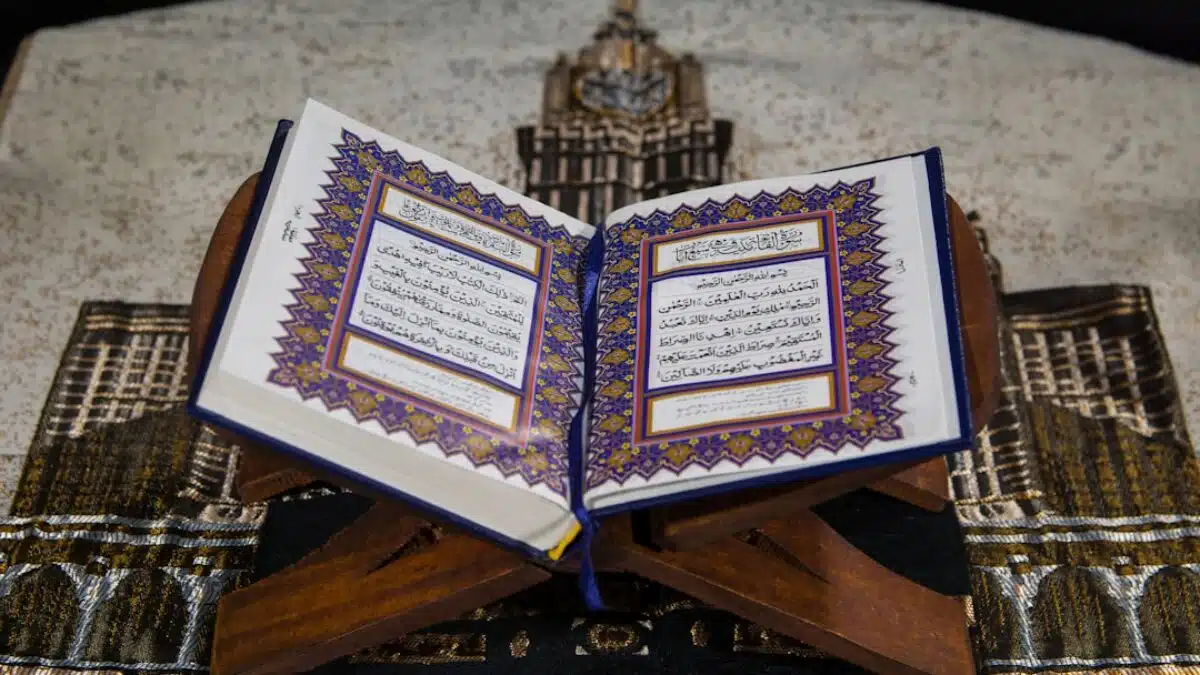Success in examinations is not solely the outcome of long hours at the desk; it is also the fruit of spiritual grounding, sincere intention, and heartfelt dua. Across the Muslim world, students have always turned to Allah subḥānahu wa taʿālā before opening a textbook, before entering the exam hall, and even while turning the pages of the question paper. The Prophet ﷺ taught us that “The dua of a Muslim for his brother in his absence is readily accepted” (Ṣaḥīḥ Muslim), reminding us that invoking blessings upon one another is part of our academic journey too.
This article presents seven authentic Islamic duas that help boost focus, calm pre-exam nerves, and open the doors of barakah (divine blessing) so that students can achieve top results. Each dua is drawn from the Qur’an or rigorously authenticated Sunnah, transliterated for easy recitation, and paired with practical tips on how to weave it into your study routine. Whether you are preparing for board finals, university entrance tests, or professional licensing exams, these prayers are a spiritual toolkit you can rely on.
Understanding Exam Success in the Islamic Framework
What Islam Says About Seeking Knowledge
The very first word revealed of the Qur’an was “Iqra!” (Read!). Allah subḥānahu wa taʿālā instructs us in Surah Al-ʿAlaq (96:1-5) to read in the name of our Lord Who created, taught by the pen, taught humanity what it knew not. This establishes knowledge as a sacred pursuit, linked directly to recognizing the Creator. Consequently, seeking knowledge is elevated to an act of worship when accompanied by the right intention—seeking Allah’s pleasure, serving the ummah, and uplifting society.
The Role of Tawakkul and Effort
Islam does not promote a passive “leave-it-all-to-God” mindset. Instead, we are commanded to tie our camel first, then place our trust in Allah (Tirmidhī). In exam terms, this means:
- Organizing a realistic study timetable
- Attending classes and seeking clarification
- Maintaining physical health through proper sleep and nutrition
- Reciting the prescribed duas to invite divine facilitation
Barakah Over Burnout
Modern productivity culture glorifies 18-hour study marathons, but Islam teaches barakah—a subtle increase in benefit that Allah places in time, effort, and resources. A single hour blessed with barakah can yield more understanding than a whole night devoid of it. The seven duas in this guide act as keys to unlock that barakah.
Key Components of Powerful Exam Duas
Authenticity: Only Qur’an & Authentic Sunnah
Using weak or fabricated supplications can open the door to bidʿah (innovation). Therefore, every dua below is accompanied by its source, grade of authenticity, and reference so students can recite with confidence.
Intention (Niyyah)
The Prophet ﷺ said, “Actions are judged by intentions” (Bukhārī). Before reciting any dua, one must clarify: “I am seeking knowledge to please Allah, benefit myself and others, and not merely for certificates or praise.”
Presence of Heart (Khushūʿ)
Mechanically reciting Arabic words while scrolling social media negates the spiritual impact. The fuqahā’ recommend a brief pause, three deep breaths, and the remembrance of Allah’s greatness before beginning each dua.
Consistency
A one-off recitation on the night before the exam is less effective than daily repetition. Set a “Dua Routine”—for example, after Fajr, after every prayer, or during the last third of the night.
The Seven Authentic Duas for Exam Success
Dua #1 – Duʿā’ al-Khawf (For Calming Exam Anxiety)
Arabic: اللّٰهُمَّ إِنِّي أَعُوذُ بِكَ مِنَ الْهَمِّ وَالْحَزَنِ، وَالْعَجْزِ وَالْكَسَلِ، وَالْبُخْلِ وَالْجُبْنِ، وَضَلَعِ الدَّيْنِ وَغَلَبَةِ الرِّجَالِ.
Transliteration: Allāhumma innī aʿūdhu bika min-al-hammi wa-l-ḥuzn, wa-l-ʿajzi wa-l-kasal, wa-l-bukhl wa-l-jubn, wa ḍalaʿi d-dayn wa ghalabati r-rijāl.
Translation: O Allah, I seek refuge in You from worry and grief, from incapacity and laziness, from miserliness and cowardice, from being overcome by debt and overpowered by men.
Source: Ṣaḥīḥ al-Bukhārī, Ṣaḥīḥ Muslim
When to Recite:
- Immediately after every farḍ prayer
- Before opening your textbook
- While walking into the exam hall
Dua #2 – Duʿā’ al-Karām (Seeking Ease in All Tasks)
Arabic: اللّٰهُمَّ لَا سَهْلَ إِلَّا مَا جَعَلْتَهُ سَهْلًا، وَأَنْتَ تَجْعَلُ الْحَزْنَ إِذَا شِئْتَ سَهْلًا.
Transliteration: Allāhumma lā sahla illā mā jaʿaltahu sahlan, wa anta tajʿalu l-ḥazna idhā shi’ta sahlan.
Translation: O Allah, there is no ease except what You make easy. And if You wish, You make sadness easy.
Source: Musnad Aḥmad, authenticated by Al-Albāī
Practical Application: Write this dua on a sticky note and place it on your desk lamp. Glance at it whenever you encounter a difficult concept; it reframes the struggle as something Allah can simplify.
Dua #3 – Duʿā’ al-Tawfīq (For Understanding & Retention)
Arabic: رَبِّ اشْرَحْ لِي صَدْرِي، وَيَسِّرْ لِي أَمْرِي، وَاحْلُلْ عُقْدَةً مِّن لِّسَانِي، يَفْقَهُوا قَوْلِي.
Transliteration: Rabbi-shraḥ lī ṣadrī, wa yassir lī amrī, waḥlul ʿuqdatam-min lisāī, yafqaḥū qawlī.
Translation: My Lord, expand for me my chest, ease my task for me, and untie the knot from my tongue so that they may understand my speech.
Source: Qur’an, Sūrah Ṭā-Hā (20:25-28)
Best Time: Recite once after Sunnah of Maghrib, then once silently just before the invigilator says “You may begin.” Students of Qur’an memorization observe visibly improved fluency after consistent recitation of this dua.
Dua #4 – Duʿā’ Dhū l-Nū(For Quick Retrieval)
Arabic: لَا إِلٰهَ إِلَّا أَنْتَ سُبْحَانَكَ إِنِّي كُنْتُ مِنَ الظَّالِمِينَ.
Transliteration: Lā ilāha illā anta subḥānaka innī kuntu mina ẓ-ẓālimī.
Translation: There is no deity except You; glory be to You! Truly, I have been of the wrongdoers.
Source: Qur’an, Sūrah al-Anbiyā’ (21:87) – known as Sayyid al-Istighfār
How It Helps: Prophet Yunus ʿalayhi as-salām recited this inside the belly of the whale; his immediate salvation demonstrates its power for urgent relief. When you suddenly blank out on a formula or date, recite this silently; many students report the answer “pops” back into memory within seconds.
Dua #5 – Duʿā’ al-ʿĀfiyah (For Overall Well-being)
Arabic: اللّٰهُمَّ إِنِّي أَسْأَلُكَ الْعَافِيَةَ فِي دُنْيَايَ وَآخِرَتِي.
Transliteration: Allāhumma innī as’aluka l-ʿāfiyata fī dunyāya wa ākhiratī.
Translation: O Allah, I ask You for well-being in my worldly life and in the Hereafter.
Source: Ṣaḥīḥ Ibn Ḥibbā, authenticated by Al-Albāī
Extension: Add the phrase “… wa fī qirā’atī wa ḥifẓī wa fahmī” (…and in my reading, memorization, and understanding). An Egyptian medical student who ranked first nationwide shared that she recited this 100 times between ʿIshāʾ and sleep during her revision month.
Dua #6 – Duʿā’ al-Fatḥ (Opening Doors of Knowledge)
Arabic: يَا فَتَّاحُ يَا عَلِيمُ افْتَحْ لِي أَبْوَابَ رَحْمَتِكَ وَعَلِّمْنِي مِمَّا عَلَّمْتَنِي مَا أَجْهَلُ.
Transliteration: Yā Fattāḥ, yā ʿAlīm, iftaḥ lī abwāba raḥmatika wa ʿallimnī mimmā ʿallamtani mā ajhal.
Translation: O Opener, O All-Knowing, open for me the doors of Your mercy and teach me from what You have taught me, that which I do not know.
Source: Collected by At-Tabarāī, authenticated by Al-Albāī
Visualization Technique: While reciting, imagine a bright light entering your mind, illuminating pages of your textbook, and transforming confusion into clarity.
Dua #7 – Duʿā’ Khatam al-Qur’an (For Completion & Gratitude)
Arabic: رَبَّنَا تَقَبَّلْ مِنَّا إِنَّكَ أَنْتَ السَّمِيعُ الْعَلِيمُ.
Transliteration: Rabbanā taqabbal minnā innaka anta s-samīʿu l-ʿalīm.
Translation: Our Lord, accept from us; surely You are the All-Hearing, the All-Knowing.
Source: Qur’an,
























Post Comment